The SEAT Tarraco is closely related to the Skoda Kodiaq, as both seven-seaters share a platform and on-board technology, making their characteristics on the road very similar. However, where the Kodiaq prioritises practicality, the Tarraco offers more in the way of driver enjoyment and slightly bolder styling.
This is in keeping with the SEAT ethos: the Spanish brand is positioned as the sportier arm of the Volkswagen Group’s mainstream contingent, so it has to tick certain boxes to appeal to its customers. To this end the ride height of the Tarraco is 20mm lower than that of the Skoda Kodiaq for better handling in corners, giving drivers about as much pleasure as is possible in the seven-seat SUV market without entering the premium end of the spectrum.
So if you need an ultra-practical family car but still want to get the most out of your driving experience, the Tarraco will be right up your street.
Models covered
- SEAT Tarraco Mk1 (2018-present) - the Spanish brand’s first seven-seat SUV, and an alternative to the Alhambra MPV.
History
The SEAT Tarraco was launched in 2018 with a choice of four engines. There was a 1.5-litre turbocharged petrol engine producing 148bhp and 250Nm of torque, offered with a six-speed manual gearbox. A seven-speed automatic option was added to the line-up late in 2019, sending power through the front wheels.
A 2.0-litre turbocharged petrol engine was available on mid-spec XCELLENCE trims and up, delivering 187bhp and 320Nm of torque through a seven-speed DSG ‘box. It was four-wheel drive only, and slightly worse-off in terms of fuel economy, returning 29.7-31.7mpg on a combined cycle.
There were also two 2.0-litre, four-cylinder diesels: the first could produce 148bhp and 340Nm of torque, with options including either the six-speed manual paired with front-wheel drive, or the seven-speed auto with four-wheel drive. The second was an uprated version capable of 187bhp and 400Nm of torque, although it could only be teamed with the seven-speed DSG and 4WD. On this unit, fuel economy ranged from 39.8 to 42.2mpg.
A plug-in hybrid Tarraco is in the works, and it’s set to use a 1.4-litre, four-cylinder petrol engine and a 13kWh battery, with an electric motor boosting total power and torque to 242bhp and 400Nm respectively. This will be the fastest Tarraco in the line-up, hitting 0-62mph in 7.4 seconds en route to a top speed of 135mph.
In February 2020, two range-topping trim levels were added to the existing SE, SE Technology, XCELLENCE and XCELLENCE Lux line-up. FR added 19-inch alloy wheels, a variety of styling updates, front and rear parking sensors and sports seats, while FR Sport added a 360-degree camera, black leather sports seats and SEAT’s Winter Pack (consisting of heated seats and washer jets).
SEAT Tarraco Mk1 reviews
New SEAT Tarraco 2019 review
SEAT Tarraco review
SEAT Tarraco SE Technology: long-term test review
Which one should I buy?
We reckon you should keep it simple with the 2.0-litre TDI 150 diesel variant in entry-level SE trim, as it combines the most useful bits of kit with the best fuel efficiency and overall value for money. The extra torque from the diesel engine will be useful when the car is fully laden with passengers and luggage, while the CO2 emissions are lower than in the 1.5-litre petrol.
As standard, the SE model gets LED headlights, three-zone climate control, a swathe of USB ports for charging handheld divides, a 10.25-inch digital instrument display and an eight-inch infotainment screen. Apple CarPlay and Android Auto compatibility is also included, which means you can integrate your smartphone on the go.
SE Technology adds sat-nav, privacy glass and larger 18-inch alloy wheels. You get 19-inch alloys on XCELLENCE-trimmed cars, as well as wireless smartphone charging, keyless entry and start, Alcantara upholstery and a rear-view camera too.
XCELLENCE Lux brings 20-inch alloys and leather upholstery into the mix, plus SEAT’s Winter Pack.
Alternatives to the SEAT Tarraco Mk1
The market is awash with very capable SUVS, although if seven seats is a must then your choices are fairly limited. As mentioned, the Tarraco is most closely related to the Skoda Kodiaq, sharing many traits with its Czech counterpart. If passenger space and practicality is your most pressing concern then the Kodiaq may be the better bet, as it houses more boot space and slightly more legroom in the third row of seats.
The Kia Sorento is another brilliant all-rounder, with excellent interior quality and impressive refinement, which should make it the perfect companion over the course of a long journey. We’d also throw the Peugeot 5008 into the mix: it’s very comfortable and one of the most fuel efficient cars of its size, capable of up to 58.6mpg on paper.
What to look for
GPS
Some owners report that the sat-nav has a tendency to lose its position on the map, making navigation tricky. It’s worth checking that this is in good working order on used models.
Water droplets inside trim strip
There’s a piece of red trim spanning the width of the tailgate that has a tendency to collect moisture in bad weather.
Noisy wipers
Some owners report that the Tarraco’s wipers can be noisy when in operation. This is easily solved with a thorough clean or replacement wiper blades.
Interior
The VW Group influence is easy to spot in the Tarraco, with a 10.25-inch digital instrument display and an eight-inch touchscreen identical to those found in the Volkswagen Tiguan Allspace and Skoda Kodiaq. The SEAT springs a little more flair however, while the layout of the dashboard and the key functions - such as the climate control and drive mode buttons - is logical and easy to use.
With the third row of seats folded flat, you’ll have 700 litres of luggage space at your disposal in the boot of the Tarraco (20 litres shy of the Kodiaq), and a whopping 2,005 litres with the second row folded down too. With all seats in the upright position, you’ll still have 230 litres to play with.
Prices
For a run-down of the best prices for used examples of the SEAT Tarraco, check out our sister site BuyaCar.
Running costs
The Tarraco should be serviced every 12 months or 10,000 miles, alternating between minor and major services. The former costs £179 and includes an oil change, replacement air and pollen filters and a screenwash top-up. The latter costs £299 and includes a fuel filter change (on diesels, when deemed necessary), as well as checks to the suspension, drive belts, brakes and of the heating and air-con. Replacement spark plugs are covered too.
The Tarraco is sold with SEAT’s standard three-year/60,000-mile warranty, so a decent portion of this should remain on used models.
Recalls
A handful of recalls have been issued for the SEAT Tarraco. In 2019, it was announced that more than 2,000 examples of the SUV were prone to producing inefficient torque at low speeds, requiring a software update to rectify the problem.
It was also discovered that 122 vehicles may have suffered cracks in the frame of the front left passenger seat, requiring new seats to be fitted where cracks were found. In 2020, seven cars were recalled for having fuel tanks that weren’t thick enough.
Driver Power owner satisfaction
The SEAT Tarraco didn’t feature in the top 75 cars to own in the 2020 Driver Power survey, however SEAT was ranked the 14th best manufacturer in the UK with a customer satisfaction rating of 88.77 per cent. This is higher than the likes of Renault, Volkswagen and Ford, but Kia, Skoda and Peugeot were among the carmakers ranked in the top 10.
Verdict
The SEAT Tarraco is the best large SUV money can buy at the moment, that’s why it won our Large SUV of the Year prize at the 2020 Auto Express New Car Awards. It’s great to drive, looks stylish and has a very smart interior, while the wide variety of engine options and trim levels means there’s a Tarraco for every kind of driver.
Better still, it retains almost all of the practicality offered by its VW Group siblings, and with the most efficient 2.0 TDI diesel returning between 45.6-48.7mpg, running costs are competitive too. To cap it off, the Tarraco is one of the most keenly priced large SUVs when new, meaning used models should be even better value for money.
from Sitewide RSS feed https://ift.tt/3pYY5wI
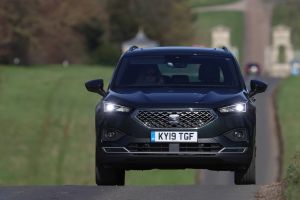
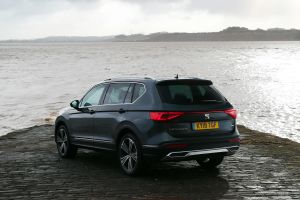
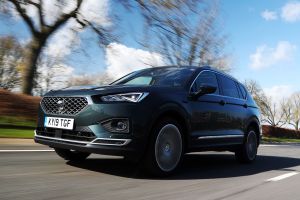
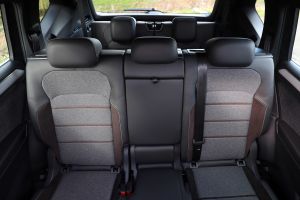
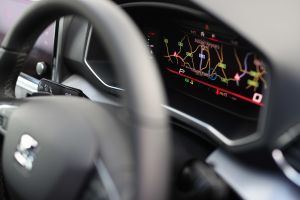
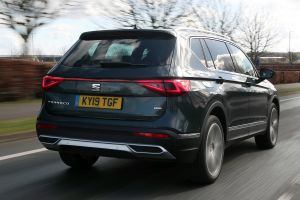
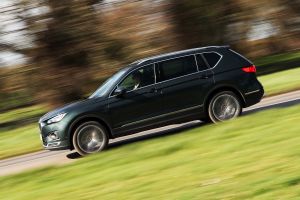
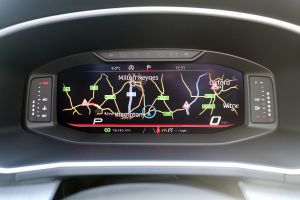
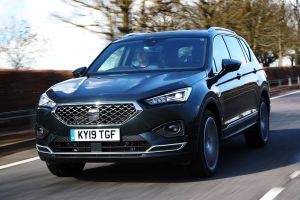
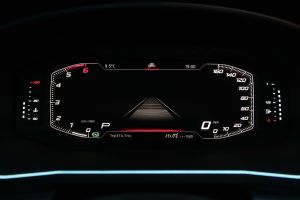
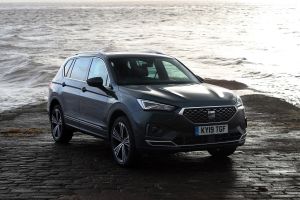
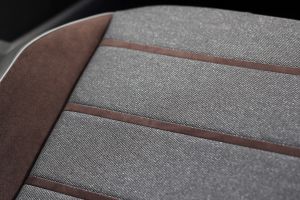
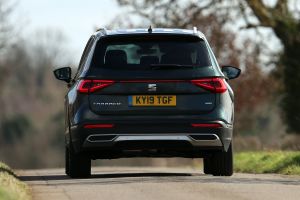
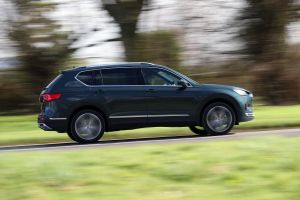
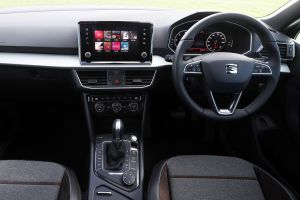
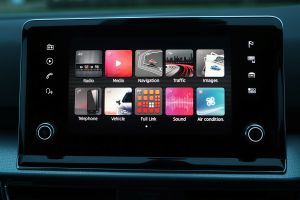
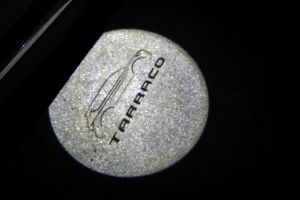
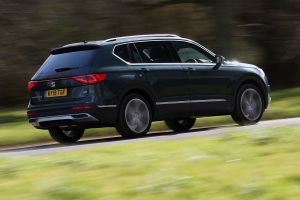
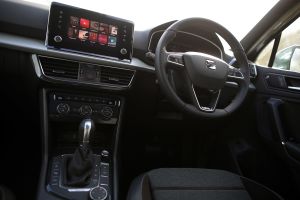
No comments:
Post a Comment